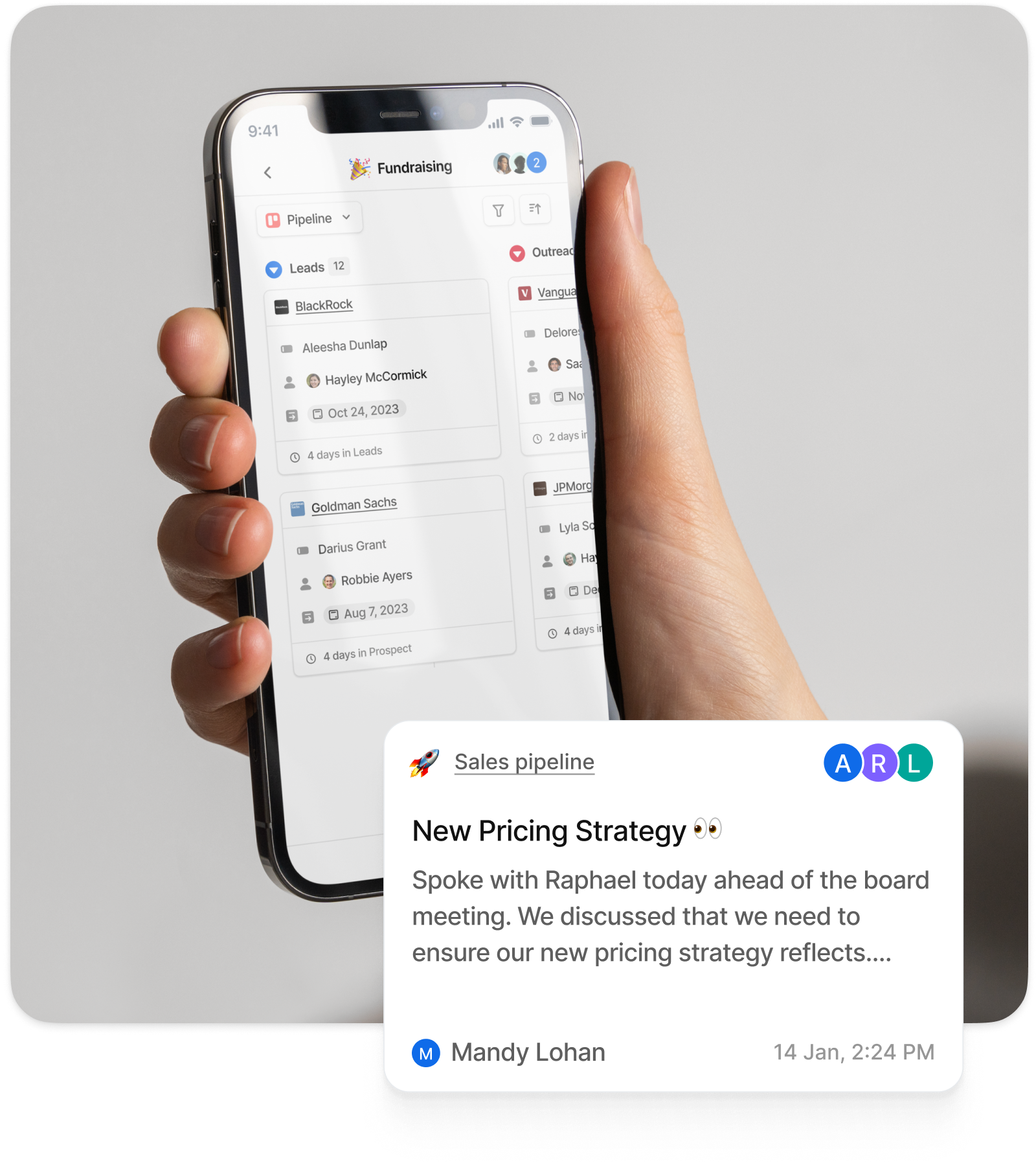Pallet's story
There are over 900 million members on LinkedIn, with over 16 million jobs on the platform. For today’s job candidates, it’s easy to assume that finding a job is simpler than ever before.
Unfortunately, the opposite is the case. Candidates without impressive resumes may struggle to stand out from the competition. Meanwhile, those with more with the right credentials are inundated with thoughtless job offers that really don’t match their skillset.
Pallet, an early-stage startup based in New York City, is aiming to change this. Pallet provides a platform for community-based hiring, where companies can tap into digital communities to find candidates and community leaders can connect people to open roles.
Since being founded in 2021, Pallet has found unique success among some of tech’s most influential thought leaders. If you’ve seen an influencer’s job board lately, they’re probably using Pallet.
Endless data entry in Airtable
The most common “big fear” for people is public speaking. For startups, it wouldn’t be too far-fetched to say that one of their big fears is CRM. This is because the gap between what startups need and traditional CRM offers is rather large. Startups require tools that are fast, flexible, and able to fit rapidly changing business dynamics. Traditional CRM, on the other hand, is opposite: it’s slow, rigid and typically the amount of upkeep and data inflexibility is a drag on any high-growing company.
Accordingly, Pallet, like many early-stage startups, first chose to create their CRM manually in Airtable. They used the tool as a one-stop shop to track all their customer interactions. This was relatively manageable when Pallet was in its earliest stages, but its manual nature – and that it’s not built to be a CRM – meant it became untenable as soon as their product gained serious traction.
“We were getting a large influx of new customers and prospects. Maintaining our Airtable situation took hours of manual work, even with just a few customers,” says DeGrasse Schrader, Chief of Staff at Pallet. “When we started gaining serious traction, it became a nightmare. It was starting to hold our business back. We’d spend more time inputting data or fixing something that broke instead of focusing on our product.”
Even though they were aware of the limitations of most CRM solutions, the reality of the situation forced Pallet to begin their search.
“We shopped around quite a bit. Everything was quite disappointing – the user experience always felt old and janky, and not really suitable for our use case,” says Schrader. “The contrast was so huge between the software and technology we’re building. We were feeling pretty hopeless and resigned that we’d end up going with Hubspot or Salesforce, even though they don’t really fit our business or what we’re trying to build.”
The Attio moment
Pallet’s fortunes began to change when Schrader saw the Attio website for the first time. She loved the look of it and was drawn in by the attention to design and detail, as well as the no-code look of the visuals.
"When I look for software, I am very methodical in comparing / contrasting and really digging into whether I’ll give a solution a try or not. With Attio, it was a totally different experience,” says Schrader. “The visuals and the look first drew me in, and the features lined up perfectly with what we’re looking for. I was sold and eager to give it a go.”
Schrader was impressed from the very beginning. “Attio automatically synced with our email and calendar data, and built out a full-fledged CRM really fast,” said Schrader. “Every record had a detailed profile with enriched data, conversations, and more. It solved a huge pain point for us. When you’re a fast-growing startup, you need a tool that will scale with you, not one you’ve got to maintain and upkeep.”
Attio also helped Pallet break down the silos between their own team. “It was important for us to have the ability for other teams to be able to get a quick overview of things that are happening on the sales and success sides,” said Schrader.
It was very clear for Pallet that Attio was meant exactly for their use case. “The flexibility, speed and adaptability enabled us to hit the ground running fast,” adds Schrader. “Once we started using Attio, we knew it would be an integral part of our tech stack.”
How Pallet uses Attio
Pallet now uses Attio as the linchpin for everything customer-related for their business. Using Attio, they can build, iterate and adapt their CRM to meet their business needs as they change.
“Attio is incredibly versatile and super intuitive. We’re basically able to mold it exactly to our business processes and it gives us a single source of truth for everything related to customers,” says Schrader. “It gives us a very clear view into everyone’s communications with customers and what’s going across the whole team. Right now we’re using it for sales lead tracking and customer success, and plan to add more use cases soon.”
Sales lead tracking
Pallet uses Attio to manage their entire sales process, from first contact all the way to close.
Every contact in their email and calendar systems is enhanced with data enrichment, and Schrader is able to see the connection strength, last point of contact, and other data variables for each person and company.
“We use Attio to track all stages of our sales process because it is such a versatile tool,” says Schrader. “My team and I take advantage of being able to create so many views of a single list – we’ve got a handful of table and kanban views in each workflow we’ve built. We also all use Attio’s note taking features so we’re all on the same page.”
Once deals are closed with prospects, Schrader is able to easily hand them off to customer success with relevant context and information. “Using Attio is great because immediately after we close a customer, I can hand them off to customer success with all communications, notes and details.”
Pallet also takes advantage of Attio’s reporting capabilities. Using the product, Schrader and her team are able to visualize their sales data in numerous different ways.
“My team loves Attio’s reporting system because it’s so dynamic. We can splice our data in so many different ways and combinations,” adds Schrader.
Customer success
Schrader and her teammates also use Attio to help ensure that customers receive the services they need. They are able to track what stage a customer is in, as well as see notes and hand-off details from sales.
With Attio, Pallet gets a holistic view of their customer base. The team is able to see detailed profiles, with all communications for each customer as well as written notes logged by her coworkers. They use Attio records to build enhanced profiles of each contact and store all notes about how customer relationships are going.
Pallet also uses Attio to automate key processes in the customer success workflow.
“We have a view that alerts us when a customer’s renewal is coming up, as well as if we haven’t reached out to someone recently. These features are super helpful when your company is growing so fast and there are so many ‘all hands on deck’ moments. It makes a huge difference.” says Schrader.
A core part of Pallet’s technology stack
For Pallet, Attio plays a central role in their go-to-market motion. They finally have the CRM that they wished they had from the very beginning: one that molds to their business process and makes it easier for them to rapidly iterate, experiment and grow.
“Attio is one of the rare pieces of software that has delivered how I thought it would before I tried it,” says Schrader. “Not only does it give us great insights on customers, but it also gives us a really clear view into everyone’s comms and what’s going on across the whole team. From communication intelligence to note-taking to data-enriched lists, it plays such a crucial role in me and my team’s everyday workflows.”
And to top it all off? No more data entry.
“I was super relieved. As soon as I onboarded with Attio, I instantly got back the many, many hours I spent every week updating data manually.”







